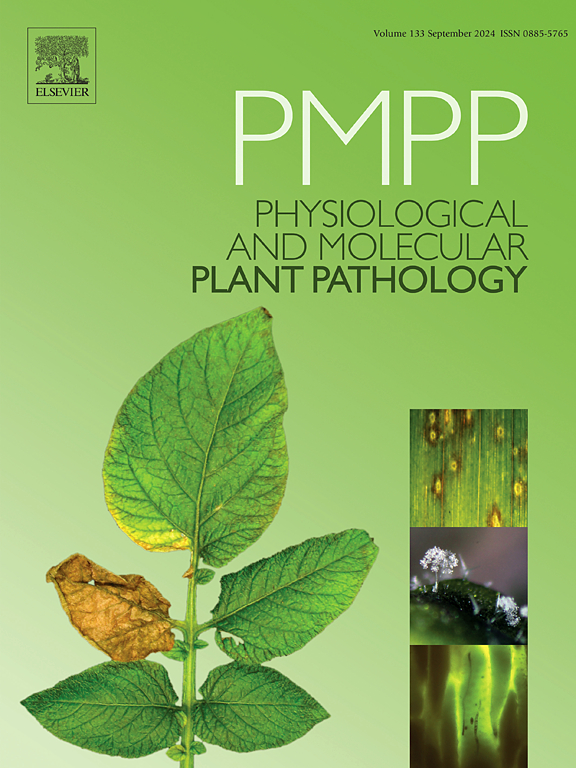微生物组:如果下一次绿色革命是微生物革命呢?
IF 2.8
3区 农林科学
Q2 PLANT SCIENCES
引用次数: 0
摘要
从历史上看,土壤微生物群的控制一直是农业不可或缺的一部分。今天,微生物组被认为是下一次绿色革命的基础,为应对不断增长的粮食需求和环境挑战提供了可持续的解决方案。随着全球粮食需求的持续增长,迫切需要通过减少对农用化学品依赖的可持续方法来提高农业生产力。然而,干旱、盐度和极端温度等环境压力因素造成了重大作物损失,威胁着粮食安全。植物微生物组通过影响养分循环、病原体抑制和胁迫耐受性,在调节植物健康方面发挥着至关重要但常被忽视的作用。植物微生物组工程(PME)和合成微生物群落(SynComs)的进展为加强植物与微生物的相互作用以提高作物的抗逆性提供了创新的策略。整合多组学技术、基因编辑和微生物组操作加深了我们对植物微生物动力学的理解,使基于微生物组的生物强化和生物防治解决方案能够实现可持续农业。尽管取得了重大进展,但在将微生物组研究转化为实际应用方面仍然存在挑战。然而,通过利用微生物多样性和设计有益的相互作用,微生物组驱动的农业具有彻底改变粮食生产的潜力。这篇综述强调了植物微生物组在塑造可持续农业的未来、平衡生产力与环境复原力方面隐藏但具有变革性的作用。本文章由计算机程序翻译,如有差异,请以英文原文为准。

Microbiome: What if the next green revolution is microbial?
The manipulation of soil microbiomes has historically been integral to agriculture. Today, microbiomes are recognized as a foundation for the next green revolution, offering sustainable solutions to address rising food demands and environmental challenges. As global food demand continues to rise, there is an urgent need to enhance agricultural productivity through sustainable approaches that reduce dependence on agrochemicals. However, environmental stressors like drought, salinity, and extreme temperatures contribute to significant crop losses, threatening food security. The plant microbiome plays a critical yet often overlooked role in regulating plant health by influencing nutrient cycling, pathogen suppression, and stress tolerance. Advances in phytomicrobiome engineering (PME) and synthetic microbial communities (SynComs) offer innovative strategies to enhance plant-microbe interactions for improved crop resilience. Integrating multi-omics technologies, gene editing and microbiome manipulation have deepened our understanding of plant microbe dynamics, enabling microbiome-based solutions for biofortification and biological control towards sustainable agriculture. Despite significant progress, challenges remain in translating microbiome research into practical applications. However, by harnessing microbial diversity and engineering beneficial interactions, microbiome-driven agriculture holds the potential to revolutionize food production. This review highlights the hidden yet transformative role of plant microbiomes in shaping the future of sustainable farming, balancing productivity with environmental resilience.
求助全文
通过发布文献求助,成功后即可免费获取论文全文。
去求助
来源期刊
CiteScore
4.30
自引率
7.40%
发文量
130
审稿时长
38 days
期刊介绍:
Physiological and Molecular Plant Pathology provides an International forum for original research papers, reviews, and commentaries on all aspects of the molecular biology, biochemistry, physiology, histology and cytology, genetics and evolution of plant-microbe interactions.
Papers on all kinds of infective pathogen, including viruses, prokaryotes, fungi, and nematodes, as well as mutualistic organisms such as Rhizobium and mycorrhyzal fungi, are acceptable as long as they have a bearing on the interaction between pathogen and plant.

 求助内容:
求助内容: 应助结果提醒方式:
应助结果提醒方式:


